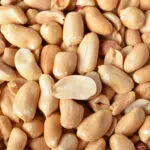National Celiac Disease Awareness Day, every September 13, is a good time to examine this little-known disease that affects about 3 million Americans. Celiac disease is a genetic autoimmune disorder in which a person who suffers from this affliction can’t consume gluten, a protein found in wheat, rye and barley. The afflicted person’s immune system responds by attacking the small intestine and inhibiting the absorption of important nutrients. Left undiagnosed or untreated, celiac disease can lead to other disorders, including cancer, osteoporosis and infertility. This year, on National Celiac Disease Awareness Day, learn a little more and share what you learn.
National Celiac Disease Awareness Day timeline
Greek physician, Aretaeus, gives one of the first descriptions of celiac disease, which the doctor calls," koiliakos," an abdominal infection.
American physician, Christian Herter, publishes a book on children afflicted with what he dubs "intestinal infantilism."
Scientists in Birmingham, England, link celiac disease with gluten for the first time.
How to Observe National Celiac Disease Awareness Day
Try a gluten-free diet
Some people — unaware of their own sensitivity to gluten — find that they feel much better when they stop eating foods containing the protein. As more information comes out about celiac disease, more people will make life-changing decisions to lead gluten-free lives.
Learn where gluten hides
Foods like soups, salad dressings and soy sauce can unexpectedly contain gluten. If you're eating out, don't be afraid to ask if a food contains gluten.
Reading food labels
This is always good advice, whether you're suffering from celiac disease or not. One of the best ways to monitor our health is to monitor what we put in our bodies.
5 Life-saving Facts To Know About Celiac Disease
Who gets it?
Celiac disease is more common in Caucasians, women, people with Down syndrome, and patients with type 1 diabetes.
Gluten sensitivity and celiac disease are different
People with gluten sensitivity may experience bloating and diarrhea — but only people with celiac disease have compromised immune systems as a result of this disease.
The numbers are rising
The number of Americans with celiac disease is increasing — possibly due to increased awareness and better diagnostic techniques.
Childhood symptoms
Digestive symptoms are more common in infants and children. These include abdominal pain, diarrhea, vomiting, and constipation.
Adult symptoms
The list is fairly long: watch for (among other symptoms) unexplained iron-deficiency anemia, fatigue, bone or joint pain, arthritis, osteoporosis or osteopenia (bone loss), liver disorders and depression.
Why National Celiac Disease Day is Important
It helps researchers follow and record undiagnosed cases
The University of Chicago Celiac Disease Center estimates that about 97 percent of celiac cases go undiagnosed in the U.S., leaving many people to suffer needlessly.
It leads to questions — and hopefully, answers
It's the perfect time to ask questions about our overall health, especially since so many people are unaware that celiac disease can affect parts of the body that seem unrelated to the digestive system (e.g., skin rash, joint pain).
It may affect you or someone you know
Celiac disease reportedly affects one percent of all Americans, so this observance can help spread valuable information. Spread the word!
National Celiac Disease Awareness Day dates
| Year | Date | Day |
|---|---|---|
| 2024 | September 13 | Friday |
| 2025 | September 13 | Saturday |
| 2026 | September 13 | Sunday |
| 2027 | September 13 | Monday |
| 2028 | September 13 | Wednesday |




















